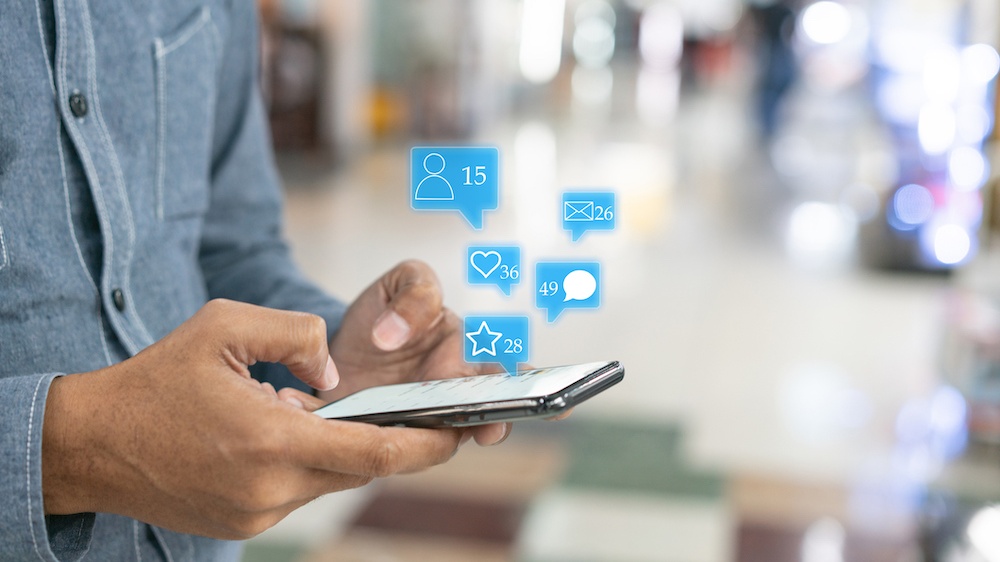This piece was submitted from a member of our enthusiastic community of readers. If you’re interested in sharing your opinion on any cultural, political or personal topic, create an account here and check out our how-to post to learn more.
The rise of social media was greeted with a lot of excitement and anticipation by many, and it didn’t take long before it took over our world by storm. And while many were praising its effect on society and the way things were going, it eventually became clear that social media is not entirely a positive factor in people’s lives.
In fact, it has some very real risks associated with it, which many people tend to underestimate, especially those who are more actively involved with social media. This isn’t about the person who opens Facebook every once in a while, dumps their recent vacation pictures, and gives a few “likes.” It’s about those who spend a lot of their time obsessively refreshing their homepage for new events, checking other people’s profiles, counting their “likes” and so on.
Comparing Yourself to the Highlights of Others*
The biggest problem about social media is that it’s essentially a highlight reel, but many people don’t see it that way. Open the profile of any random contact of yours and you’re going to see posts showing them in various good lights, often showing off the fun, engaging lifestyle they’re having, and so on. But beneath that surface always lies a much more normal, average life.
It’s just that people don’t have a reason to post these things, so you never get to see them. But it’s easy to get the impression that these highlights represent the average day in this person’s life — and comparing someone’s highlight reel to your own regular daily life can be very damaging to your confidence.
The Addictive Factor
Social media is also designed to be addictive in multiple ways. Many of them are subtle, especially when it comes to big players like Facebook and Instagram. But many people crave that little red notification telling them that someone has liked their recent post, and they will constantly try to earn it.
And after making a post, what follows is typically obsessive refreshing of the page to see how well it does. Some may even go as far as to delete posts that haven’t gotten any attention just because they don’t want to leave something with so few likes on their profiles!
A Feeling of Isolation
This one is a bit strange, but we’re seeing more and more proof that it’s actually true. Many people can feel a sense of extra isolation from their use of social media, even though it’s designed to bring people together. But if you’re currently in a situation where you’re craving human contact and keep seeing various people getting together and posting about it on social media, this can quickly make you feel left out and alone.
That’s often not the case though — it’s the same as with the highlights situation that we described above. But it can be difficult for a person to see things in such an objective manner when they’re the ones feeling left out.
Real-life Interactions Can Be Less Interesting
Some people also report that meeting their friends in person can be a bit less engaging and exciting if they interact actively on social media. After all, you already know what that person’s been up to since you last met. You’ve seen pictures of their vacations, their exciting nights out, their special moments — everything. Sure, you can discuss these things, but the spark of curiosity will be missing. Neither of you will learn anything truly new about the other person.
And over time, this can promote distancing yourself from some of the people that are closest to you. This is a very odd effect of social media that is still being studied, but we have many reasons to believe that it’s true at this point. And it will likely only keep getting worse.
Oversharing
Last but not least, some people have an unhealthy tendency to overshare many details about their lives on social media. This is not just harmful on a psychological level — it’s downright dangerous. You never know who might be reading those posts (even if you think you’re in control of your friends list, it can be surprisingly easy for a malicious actor to slip past) and you also don’t know how some people might decide to use certain details that you reveal about yourself.
In the end, social media can definitely be a useful tool. It offers many benefits for staying connected, exploring new towns, getting in touch with new people, and so on. You can even use it on a conference Wi-Fi to get some quick updates while at work. But like anything, it has to be used in moderation. And the main problem here is that the people developing the major social media networks often don’t have any interest in promoting this kind of use. Instead, they’re doing everything in their power to keep their users as addicted as possible, because this is what generates profit for them.
